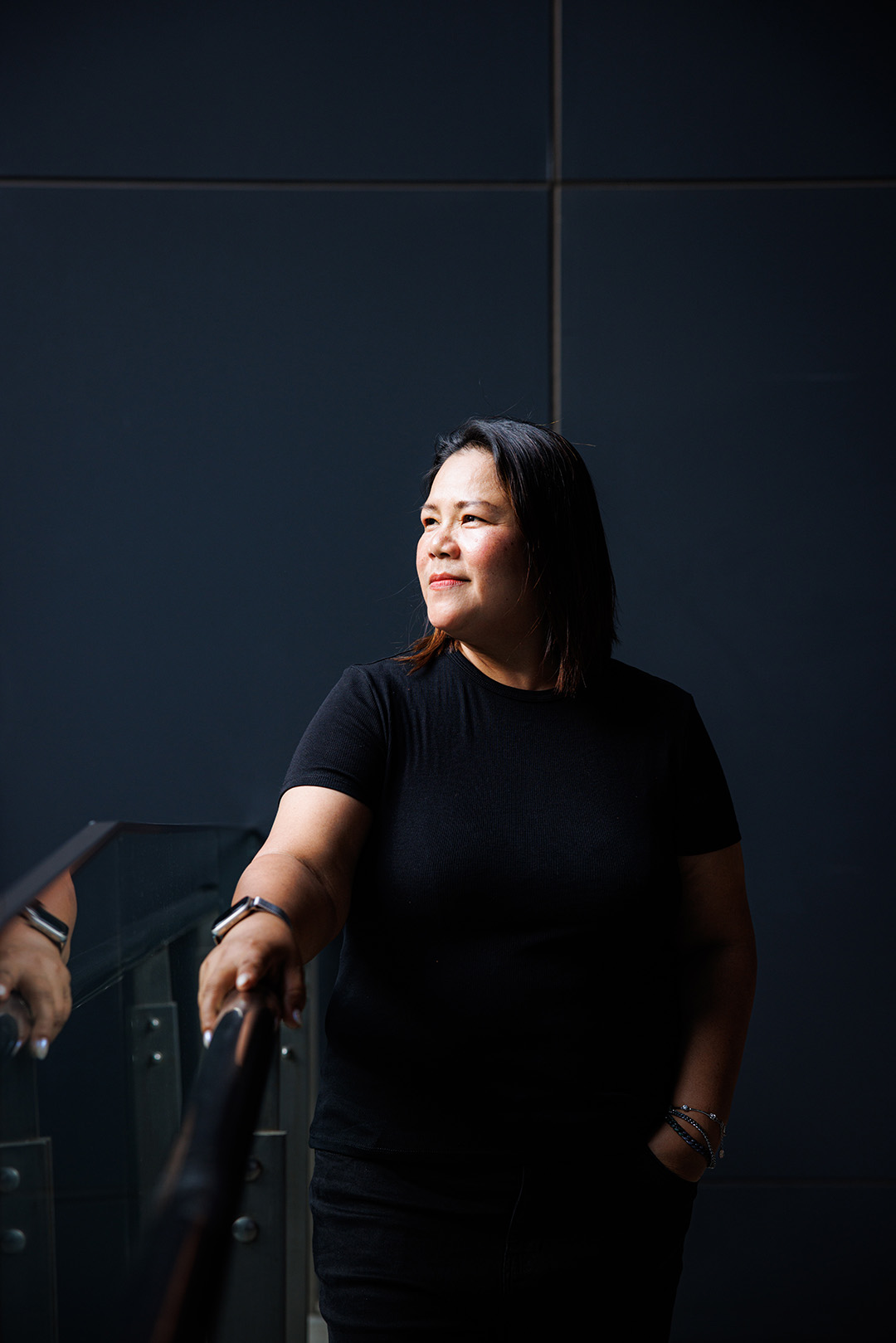My earliest memory is of crying inside a locked supply room. My mother had sold me as a temporary child laborer, as she often did. When she returned to pick me up after a few days, she dropped me off at another shop, then another. I was only 3 years old.
When I was around 4, we traveled to a home in Bangkok, where a man was waiting for us. He gave my mother 2,000 Thai baht (about $58), and she laughed.
I wondered if I would stay there for a few days—but my mother never came back.
I became a slave laborer to the man, the imam of the neighborhood’s Muslim community. He had four wives, and he lived with his fourth wife and their ten children. The imam allowed me some homeschooling, but I mostly learned how to cook, clean, serve, and be a devout Muslim.
At night, I slept in a tiny room that could only be unlocked from the outside, like a cage. Sometimes, when I felt too tired, I would only pretend to pray and work. When the imam found out, he would hit me and lock me in my room for three days without food or water.
As I grew older, I felt my heart calcifying; I became cold and reserved, completing my tasks mechanically. It was too painful to dream of any alternative. I had not seen the outside of the home all this time.
When I was 18, I became pregnant by the imam. Every night after a hard day of work, I came back to my room, belly swelling, and looked out my small window, wondering, Why am I here?
I delivered my baby girl at home, and the imam took her away immediately. I didn’t see her again for years—I had no idea what her name was or where she had gone.
At 25, I was pregnant again. Life felt unbearable. That’s when I began hearing a gentle whisper in my ear: It’s okay. Just stay alive.
 Photography by Lauren Decicca for Christianity Today
Photography by Lauren Decicca for Christianity TodayI didn’t know who or what this voice was, but it comforted me; it was powerful yet gentle. As the time came to deliver my second baby, the voice kept reassuring me: It’s going to be okay. This baby was also a girl, and she was also taken away from me immediately.
One night not long after the birth, I awoke at three in the morning to the voice telling me to escape through the window. I was confused, but the voice said, It’s time.
As I was contemplating whether to jump—my room was on the second floor—the imam’s sister knocked on my door. She entered and brought in a young girl, around 6 or 7. I took one look at the child’s face, so much like my own, and knew she was my first daughter. They could only stay a moment, and after they left, I felt at peace, for I had bargained with the voice just before they had come in, saying, “If I jump, you have to promise I’ll get back everything I have lost.”
Finally seeing my daughter made me trust that voice a little more. So I jumped and escaped on my own.
A woman in the community took pity on me and sent me to seek refuge with her brother in another town. There, I hid behind my burqa as I worked at a store. Physically, I was free, but mentally, I felt trapped.
During this time, a US Army officer working at the American embassy began pursuing me romantically.
“Do you want to see America?” he asked one day.
This was the first time another person had ever invited me to do something of my own will. I felt he could help me get away from Bangkok, so I followed him to Chicago.
It was not the fresh start I had hoped for. During the next six and a half years, the man abused me. I tested positive for HIV, developed tuberculosis, and landed in the hospital, wrecked with despair. All the money I had earned while working in Chicago at a flower shop, at a grocery store, and as a cleaner went toward my medical bills.
Soon I had nothing left, and the officer sent me back to Bangkok. I never saw him again.
For three months, I languished alone in a hospital bed. My legs became paralyzed, and though I could hear what went on around me, I could not move or see, and I could not remember my name or who I was.
During this season of torment, I silently called upon every god I knew—yet nothing happened. An American friend visited and talked about Jesus with me, asking, “Why don’t you ask Jesus to be your savior?” Unable to say anything or acknowledge that I had heard, I cried out to Jesus in my heart: If you are with me, come save me.
But my condition only worsened. The doctors asked my relatives to prepare for a funeral. By then, my mother had passed away, so my brother and aunt came to pick me up, even though none of us had ever met.
Afraid that my illnesses were contagious, they placed me in a small house far from their homes in the village as they waited for me to die.
I went for six weeks without food or medicine, only water, which my aunt came in to give me from time to time. Yet strangely, I never felt like I was alone, because the voice that had spoken to me all those years ago spoke again: Live.
In that little house, I understood that it had been Jesus’ voice all along, and in his presence, I slowly came back to life. My wounds healed and my spirits lifted. Then one day, it seemed as if Jesus was telling me, Come out.
I stumbled out of the wooden house like Lazarus. My family, the villagers, and the doctors who had tried to heal me were all shocked. They wondered if I was a completely different person, maybe an identical twin.
A pastor in Bangkok had visited me while I was on my deathbed in the hospital. After my miraculous healing, he brought me to a ministry called The Well to help me recuperate. I told him I wanted to learn more about the voice that had brought me back to life, and that’s when I gave my life to Jesus.
The pastor helped me enroll at a Baptist seminary in Bangkok, where I received my biblical studies certificate. I wondered where this new life in Christ would take me.
It took me to the one place I didn’t want to go. Not long after I graduated, I felt God calling me to return to the the Muslim community I had escaped. Go back, God said. Learn to forgive and love them.
The community still had both my daughters, and they didn’t want to return them to me because I had become a Christian. But I slowly reestablished connections. I brought food and had meals with people. I accompanied elderly women to the hospital and shared how Jesus had befriended and saved me.
About eight years after I returned to the community, the imam who had enslaved me called on the phone. He said he was dying of cancer and wanted to see me.
I sat next to him as he lay bedridden, and he asked me to forgive him. And then he said, “Can you give me bread and coffee?”
I was stunned. He had locked me up for years. Why should I forgive and serve him? What was I even doing, sitting there next to him?
Then I remembered Jesus and his command to forgive and love my enemies. I took the bread and gave it to the imam—and the chains in my heart broke. I felt true freedom at last, from this man and all those terrible years.
Later, right before he died, the imam asked if I wanted to have my daughters back. He didn’t need to ask twice. Today, my two daughters, now 25 and 32, live with me.
When I jumped out of that window, I asked God to give me everything back. He kept his promise: He kept my daughters safe and returned them to me. When I was locked away, he was my friend and savior. When I was dying, he brought me back to life.
What’s more, he has transformed my suffering into an open door to minister to other people in dire situations living in Thailand, including prostitutes, abandoned children, and those who have been trafficked or are without homes.
I am living proof that God is working in the darkness. And all the ways he has loved me are glimpses of the everlasting life I now treasure in him.
Rakthai Sophia Loibl is the founder of the Bangkok-based ministry Walk with Love.
Isabel Ong is East Asia editor at Christianity Today.















